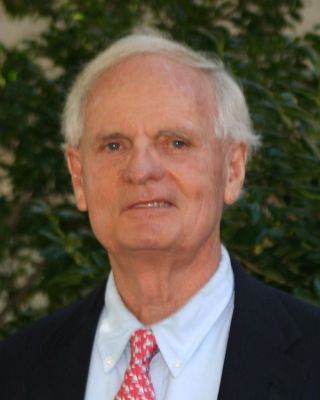
Bobby Edgerton is a Co-Founder of the Capital Investment Companies and has served as an executive officer of the companies since 1984. He is also the firm’s Chief Investment Officer and has been in the financial services industry since 1979.
After winning the North Carolina State High School Golf Championship, Mr. Edgerton accepted both a basketball and golf scholarship from Wake Forest University and graduated with a B.A. in business and finance.
After graduation, he attained a rank of First Lieutenant in the U.S. Army Signal Corps, where he commanded a thousand-man training company at Fort Gordon, Georgia, during the Vietnam War. During his amateur golf career, Mr. Edgerton played in four United States Amateur Championships.
In this exclusive 2,209 word interview in the Wall Street Transcript, Mr. Edgerton uses his vast investing experience to identify some new stocks that will super charge your portfolio.
“Back in the 1970s, when I got started, it was Firestone, it was WD-40 (NASDAQ:WDFC), Champion spark plug and obviously no tech.
But now of course, technology keeps changing and advancing, so technology changes everything. When you look at Shopify (NYSE:SHOP), when you look at Netflix (NASDAQ:NFLX), Zoom (NASDAQ:ZM) and Facebook (NASDAQ:FB), they have changed the world so fast in 10 years.
I follow what Sequoia Capital and other venture capitalists bring public. Some people have a passion for managing money, which I do.
I can’t put people’s retirement plan in venture capital money and startups, but I do follow them. And Kleiner Perkins and Sequoia, they have the ability to nurture new companies that are going to change the world.
I have a heavy concentration in tech. I’ve always liked cash-rich, debt-free companies, whereas a lot of companies choose to have a lot of debt, but the Googles (NASDAQ:GOOG) and the Apples (NASDAQ:AAPL) don’t like debt.
Google has $4 billion in debt, but their cash is $120 billion. For the longest time, Apple didn’t have any debt. They don’t have any net debt. Now, their net cash is about $115 billion. Facebook has $40 billion in cash. They have no debt.
You don’t go broke with a lot of cash and no debt.”
Get all the new stock picks from Bobby Edgerton by reading the entire 2,209 word interview, exclusively in the Wall Street Transcript.
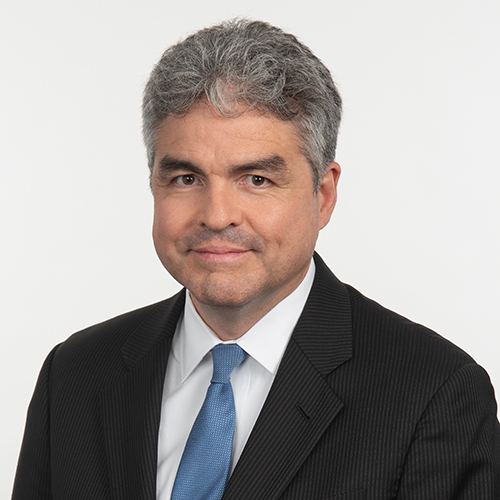
Pedro Marcal is the Director of International Equities and a Portfolio Manager at Foresters Investment Management Company, Inc. — FIMCO — and joined the firm in May 2018. Previously, he was a portfolio manager of global and international products at Fred Alger Management, where he worked for more than five years.
Before that he was a portfolio manager at Allianz Global Investors and its predecessor, Nicholas‐Applegate Capital Management, for 18 years where he focused on international equities, including developed and emerging markets. Mr. Marcal has been in the investment management industry since 1994.
He has a B.A. in economics from the University of California at San Diego and an MBA from UCLA.
In this 4,245 word interview, exclusively in the Wall Street Transcript, this experienced portfolio manager details his investment philosophy and top picks.
“We seek capital appreciation by focusing on those companies undergoing positive change that isn’t fully recognized by the market. We use a team of sector analysts to do in-depth fundamental research on companies. Philosophically, I would say that there are three key beliefs underlying our approach.
First is that stock prices are driven by earnings and cash flows. So the higher the earnings and cash flows, potentially the higher the stock price.
This relationship is coupled with the belief that markets are inefficient, and one of those inefficiencies is how investors recognize business change. We seek to invest in companies that are undergoing a material, positive change.”
One positive near term cycle is identified by Mr. Marcal:
“Actually, a large part of this new product development cycle is driven by the gaming platforms. We are about to enter another gaming cycle where, by 2020 probably, you’re likely going to start to see new Microsoft (NASDAQ:MSFT) and Sony (NYSE:SNE) gaming consoles.
On top of that, you have Google (NASDAQ:GOOG) launching a cloud-based gaming initiative, for lack of a better term. So people no longer sit down at home and watch TV for a couple hours. Instead, they watch YouTube videos and play games on their phones during their commute and have a wider range of entertainment options.
I think there’s a big transformation that’s taking place in this marketplace, and how these games are being monetized for their respective owners is particularly intriguing.”
To get the stocks benefitting from this new economic cycle and other identified investment trends, read the entire 4,245 word interview, only in the Wall Street Transcript.
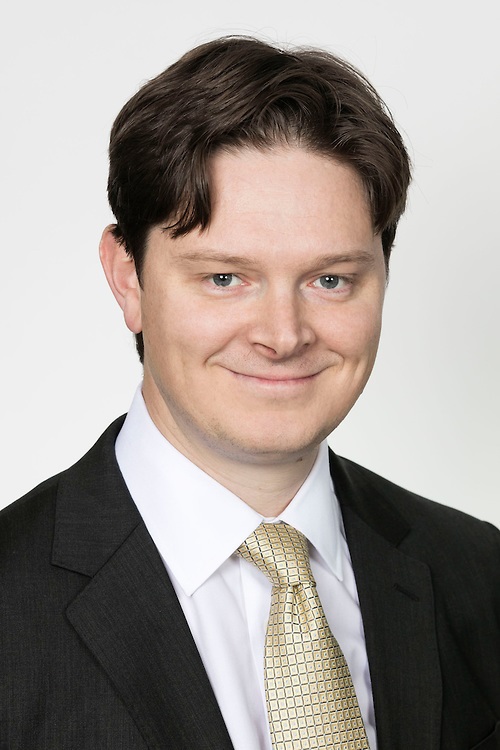
Jay Rhame is CEO and a Portfolio Manager at Reaves Asset Management. He was named to the post on January 1, 2019. He is a member of the portfolio management team, serves on the risk management committee and is Co-Portfolio Manager of the Reaves Utilities ETF.
Mr. Rhame joined Reaves Asset Management as a full-time employee in 2005. Previously, he was an energy and utility analyst and one of the firm’s traders.
In this 3,040 word interview, exclusive to the Wall Street Transcript, Mr. Rhame elucidates how utility stocks can be exciting and profitable for any investor:
“I think the most important thing is these dividends actually grow if you compare them to fixed income. In our portfolio, the average utility has been growing their dividends 5%, 6%, 7% a year, sometimes a little bit higher than that. And that growth is really the key.
What we tell investors is: Obviously, the stock market goes up and down, and sometimes you have very little control of the volatility. But we know that when we invest in companies that are paying a dividend and growing that dividend, they’re creating value. And over time, that value creation should be reflected in the higher stock price.”
A current investment decision provides an example:
“The problem in California was that there were a couple big fires. The way the state has dealt with natural disasters like that is basically the utilities have strict liability.
If a utility pole or wire has caused a fire, anywhere, well, they’re liable for the entire damage. The last two years, the fires have been incredibly disastrous, and damages are likely in the tens of billions of dollars, so Pacific Gas and Electric was forced into bankruptcy.
And that’s really affected every company that deals in California. One in particular, Sempra (NYSE:SRE), is a utility, which includes San Diego Gas and Electric, but they’re a pretty diversified company. They just bought a utility in Texas — in Dallas, actually. They have an LNG export terminal that should be operational in the next several months.
They have a pipeline business in Mexico and some South American assets that they’re actually looking to sell right now.
But you add it all up, and in California, at least the electric utility portion of California is only about 25% of their total assets, whereas the company has had a long track record of very successful growth. They’ve been able to grow their dividend in the high single digits for a long time.
Right now, it may be an opportunity to buy a company that’s been successful for a long time but has come down in valuation because of its exposure to California.”
Get the complete detail by reading the entire 3,040 word interview, exclusive to the Wall Street Transcript.

Brian Yacktman is Chief Investment Officer, Portfolio Manager and a Principal of YCG, LLC. Mr. Yacktman founded YCG Investments in 2007. Prior to founding YCG, Mr. Yacktman was an associate at Yacktman Asset Management, the adviser to The Yacktman Funds. He joined them in June 2004 from Brigham Young University, where he graduated cum laude with a B.S. in economics and an MBA with an emphasis in finance.
In this 4,288 word interview, Mr. Yacktman discusses how he evolved his individual portfolio management company into a financial asset manager with a mutual fund on offer:
“…It is not just about putting up good numbers, but it is how you get there. We believe our approach has shown that ability to produce strong risk-adjusted returns.
I view us as very suitable to investors who are patient and long-term-oriented. In short, we have been able to accomplish these strong risk-adjusted returns by seeking to invest in global champions with pricing power that can grow their volume over the long term.
For that to work out over time requires a patient, long-term investor.”
The Yacktman investment philosophy informs the portfolio construction:
“…40 years ago, to get the capabilities of the smartphone in your pocket would have cost $1 million, but today, you can get it for less than $500.
What is lesser known is that these deflationary forces are happening in industries all around us after you adjust for inflation. Nearly everything is becoming a smaller percentage of someone’s budget.
Food costs are coming down, as are energy costs and commodity costs. They are all facing deflationary pricing. There are very few companies in the world that can buck that trend and maintain a share of our budgets or a share of GDP.
So we want a portfolio that is filled with these global champions.”
Mr. Yacktman illustrates this with one of his stock picks:
“One of my favorite businesses to describe because it explains our strategy so well is Moody’s. Before, I was describing our looking for businesses that are information filters and people filters. Moody’s acts as a powerful information filter.
As you know, Moody’s is selling credit ratings. The industry itself has favorable long-term growth prospects. Because as long as there are businesses in the world, there is going to be the desire to bring down the cost of capital by issuing debt.
Debt issuance has historically grown at least as fast as global GDP. But in the capital markets, bond issuance has grown even faster as it has taken share from banking loans. Moody’s essentially acts as a toll taker on global bond issuance.
We believe that it is indexed to grow volume long term at the pace of GDP or better. Now hanging over its head is that there’s all this global indebtedness. I would argue that some of the best investment opportunities are those when there may be fears in the short to medium term but very clear long-term prospects.
Now, to get down to the specifics about Moody’s as an information filter. Moody’s essentially is charging a very small expense of approximately 7 basis points to rate their bonds. Yet, they save a corporation around 30 to 50 basis points in their annual borrowing costs. So it’s a no brainer for decision-makers…”
To get all of the top stock picks from Brian Yacktman read the entire 4,288 word interview, exclusively in the Wall Street Transcript.
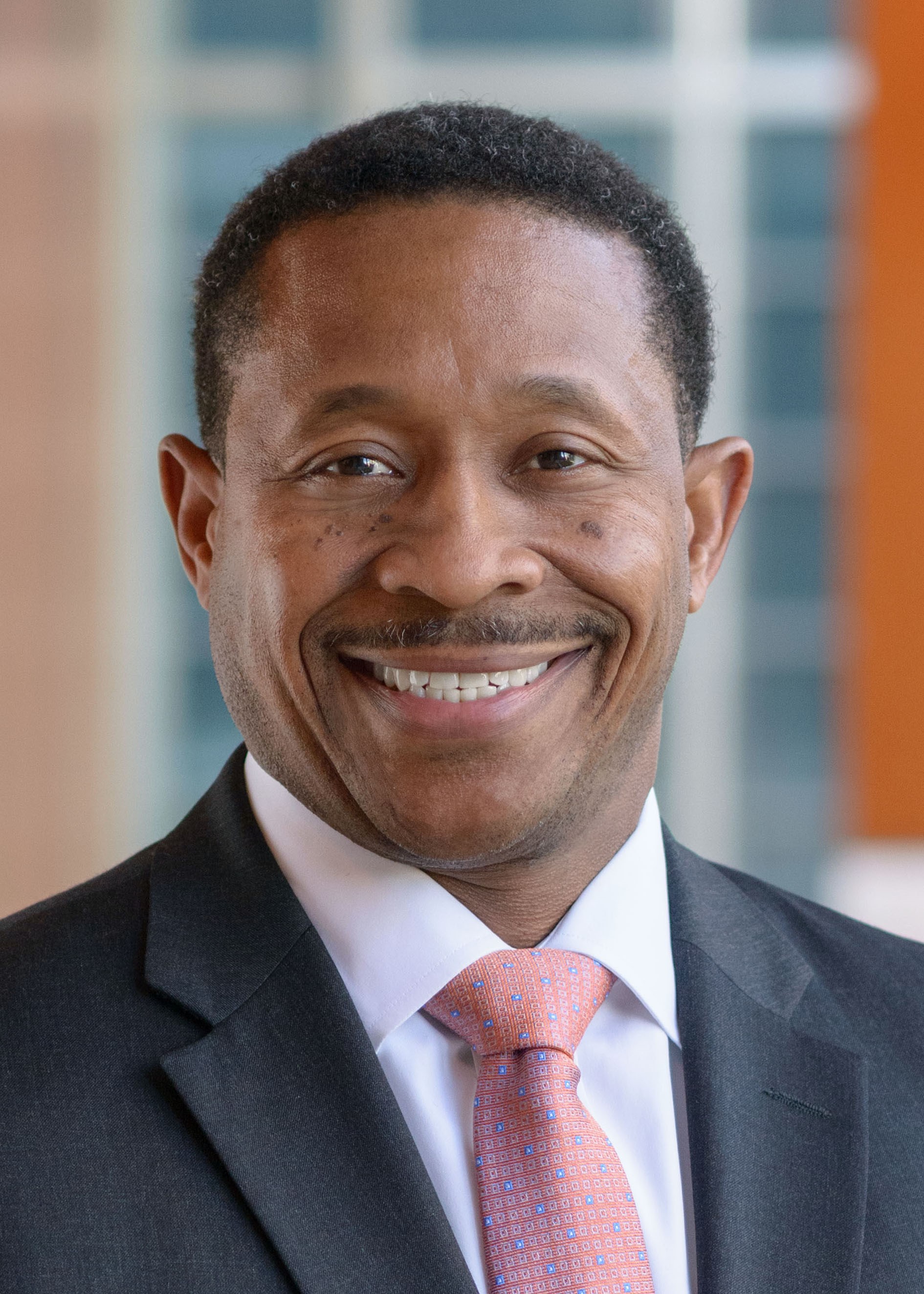
Leo Harmon Jr., CFA, is Director of Research and Managing Director Research Division of the Equity Management Group of Mesirow Financial Inc. At Mesirow, Mr. Harmon serves as Co-Portfolio Manager and Director of Research for small-cap value and smid-cap value equity strategies and provides coverage for bank-related companies within the financial services sector.
Mr. Harmon has more than 25 years of investment management experience as a portfolio manager and research analyst covering a variety of industries with both larger and smaller market capitalizations and has a particular expertise in financial services.
Prior to joining Mesirow Financial, he was a managing director, director of research and portfolio manager for a predecessor company, Fiduciary Management Associates, LLC, where he joined in 2003 and which was subsequently acquired by Mesirow Financial in 2016. Before that, Mr. Harmon was a portfolio manager at Allstate Insurance, Allstate Investments LLC.
In this exclusive 2,997 word interview, only in the Wall Street Transcript, Mr. Harmon details his current portfolio management advice:
“If I am looking over the next six to 18 months, call it an intermediate time frame, we are in a market environment that is probably very near or very close to seeing the best returns behind it. We have had a bull market that celebrated his 10th birthday in March. That is very long, typically, for a market cycle. Most market cycles last anywhere from five to seven years.
We think that the Federal Reserve and other global central banks, in general, have used monetary policy to avoid crashes of risky assets and to extend a market cycle longer than it normally would have been. At this point, those types of policies will have less and less impact going forward.
That is not to say that the Fed can’t cut rates, but the impact of the next couple of rate cuts are much less impactful to the market prices overall than rate cuts we saw earlier in the cycle or the pause we saw in 2016.
Our thought process related to the market is that we are in a much more mature phase of the market cycle. That does not mean that equity prices cannot continue to go higher, but it does mean that they go higher at a much slower pace than we have seen in the previous 10 years.
We may be moving into a market environment over the next three to five years that has a much lower return structure than you would typically expect from equities.”
Read the entire exclusive 2,997 word interview, only in the Wall Street Transcript.
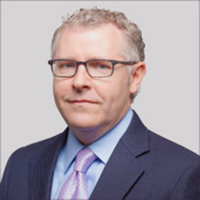
Ted Gardner, CFA, is Managing Director and Portfolio Manager of Salient Partners, LP. Mr. Gardner is a Managing Director and serves as Co-Portfolio Manager at Salient in the firm’s MLP complex. Mr. Gardner formerly served as Portfolio Manager and Director of Research at RDG Capital, LLC, a Houston-based asset management firm specializing in MLP investments.
RDG was acquired by Salient in 2011. Previously, Mr. Gardner served as a research analyst with Raymond James and Associates following MLPs in the pipeline, midstream, propane, maritime and coal industries.
Mr. Gardner is a CFA charterholder and holds a Bachelor of Business Administration from The University of Texas at Austin and an MBA from the University of St. Thomas, Cameron School of Business in Houston, Texas.
In this 2,732 word interview, exclusively in the Wall Street Transcript, Mr. Gardner explores some of his top portfolio picks:
“If you look at one of the largest names in the space, Enterprise Products (NYSE:EPD), it includes oil pipelines, natural gas pipelines as well as natural gas liquids pipelines. They also have petrochemical assets that deliver feedstocks into petrochemical plants and other assets.
It is not unusual these days to have this diversification, particularly among the larger-cap names. We don’t seek an oil pipeline in XYZ basin; rather, we are really looking at whole businesses.
There are opportunities in multiple areas. There is a pretty large infrastructure buildout occurring in the Permian Basin for both oil and natural gas. We have also had some opportunities in the natural gas liquid space. Our approach is holistic.”
Other trends in this sector are analyzed by this highly experienced expert:
“In other instances, you hear of conversations among companies about consolidating projects. What we mean by that is, if you had two or three pipelines being contemplated, none of which have the necessary level of commitment to secure their economics individually, if you put them together in one joint venture pipeline, then you get to your economics.
A good example of this is MPLX’s (NYSE:MPLX) recent public announcement that it would join the Wink to Webster Pipeline project along with Exxon Mobil (NYSE:XOM) and Plains All American (NYSE:PAA), rather than pursue a separate project. These are some of the trends that we are seeing from a return-on-invested-capital perspective.”
Get the full detail from this industry expert by reading the entire 2,732 word interview, exclusively in the Wall Street Transcript.
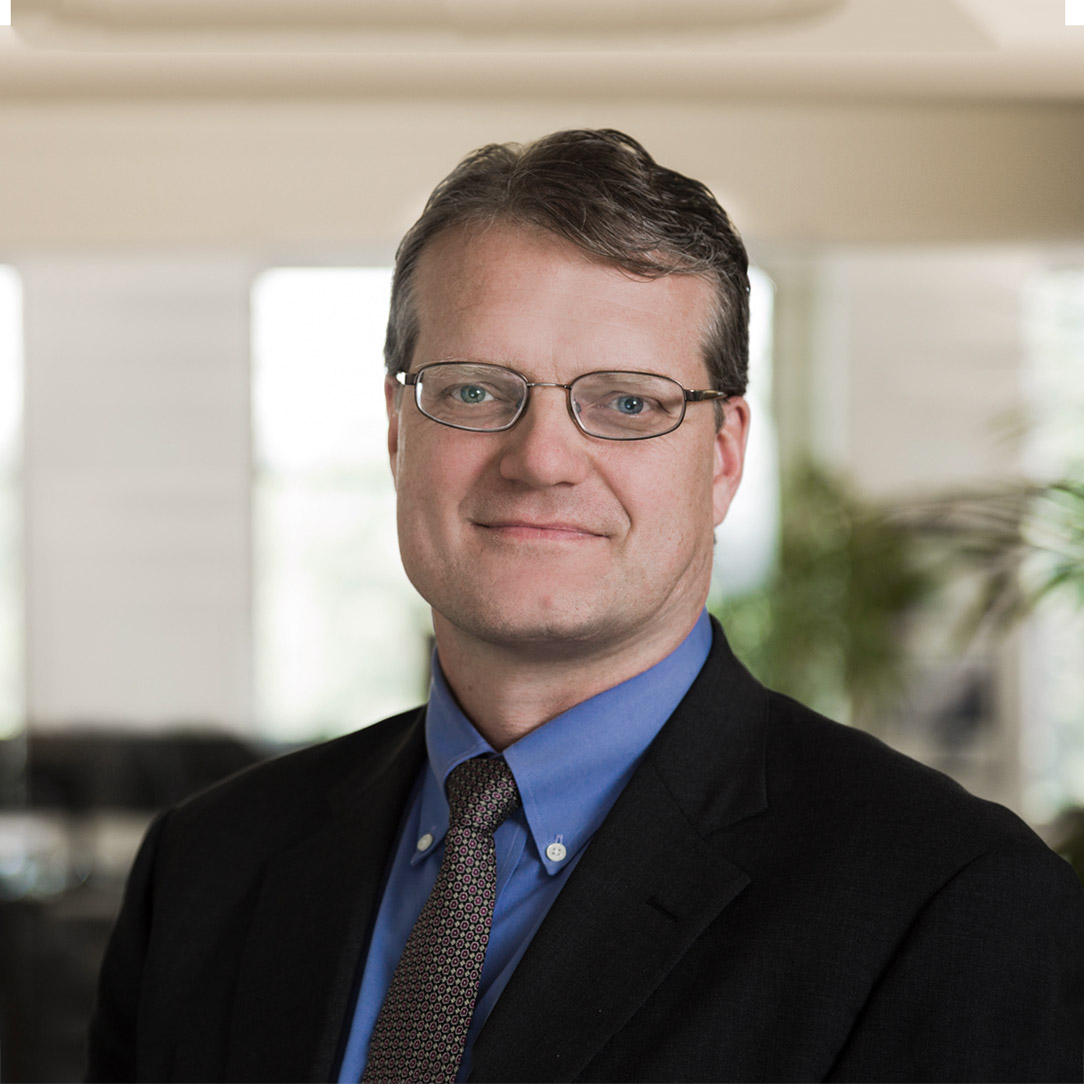
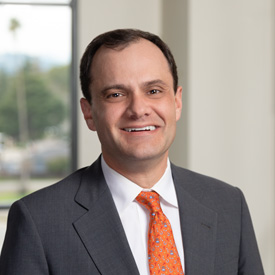
Ryan C. Kelley, CFA, is Portfolio Manager of Hennessy Funds. Mr. Kelley joined Hennessy Funds in 2012 through the acquisition of FBR Funds. He began his career as an associate in corporate finance at FBR & Co., a leading investment bank, and later joined their institutional equity research team.
Mr. Kelley was named to the FBR Funds Portfolio Management team in 2005. Mr. Kelley received a B.A. in anthropology and geology from Oberlin College, and he is a CFA charterholder and a member of both The Boston Security Analysts Society and the CFA Society North Carolina.
L. Joshua Wein, CAIA, is Co-Portfolio Manager of Hennessy Funds. Prior to joining Hennessy Funds in 2018, Mr. Wein served as Director of Alternative Investments and Co-Portfolio Manager at Sterling Capital Management and as Portfolio Manager at Bellator Capital Partners.
He also worked as an associate equity research analyst at First Union Securities. Mr. Wein received a BBA in finance from Emory University and an MBA from Vanderbilt University. He is a CAIA charterholder and member of the CFA Society North Carolina and the Chartered Financial Analyst Institute.
In this exclusive 3,726 word interview, the two portfolio managers discuss the natural gas sector and how investors can prosper through their mutual fund:
“…They thought 30 years ago, it would be great to have a way for investors to invest across all of the companies that are members of the American Gas Association that are also publicly traded. Back then, there were about 130 companies that were publicly traded gas distribution companies.
Now, we have 49 in the fund, and that’s been part of the story over many years, a story of consolidation.
There are not a whole lot of funds that have been around 30 years, certainly not within the utility space. This fund is a pretty straightforward mutual fund that focuses on natural gas distribution companies.
The fund has done very well over many years. Since inception through April 30 of this year, it’s returned 9.64% per year, and the nice thing about it is that that’s comprised of both dividends as well as stock price appreciation.
And roughly speaking, over that period of time, about a quarter of the total return is from dividends, and about three-quarters is from the stocks themselves doing well.”
The portfolio managers declare that this level of return to investors will continue:
“Right now, in the United States, we are at record levels of natural gas production. Production is up 10% versus last year for instance, and that is above the record levels set last year.
The EIA, the Energy Information Agency of the United States, predicts natural gas consumption will grow to record levels this year, up 9% to 11% by the end of this year. So we are in a very good place as far as the overall industry goes.
Also helping to drive that consumption is a rapid increase in exportation as well.”
Some of the controversy over natural gas production in the US may become less important as the postive aspects of this fuel source become apparent:
“…For many years now, natural gas has been replacing coal, which is the dirtiest fossil fuel. Ten years ago, the usage of the two fuels was about even. About 23% of all the energy consumed in the United States was from coal, and 24% was from natural gas.
Now, natural gas comprises 31% of the overall energy used in the United States, and coal is only 13%.
It has been an excellent way to replace dirty coal.”
Get the full 3,726 word interview exclusively in the Wall Street Transcript.
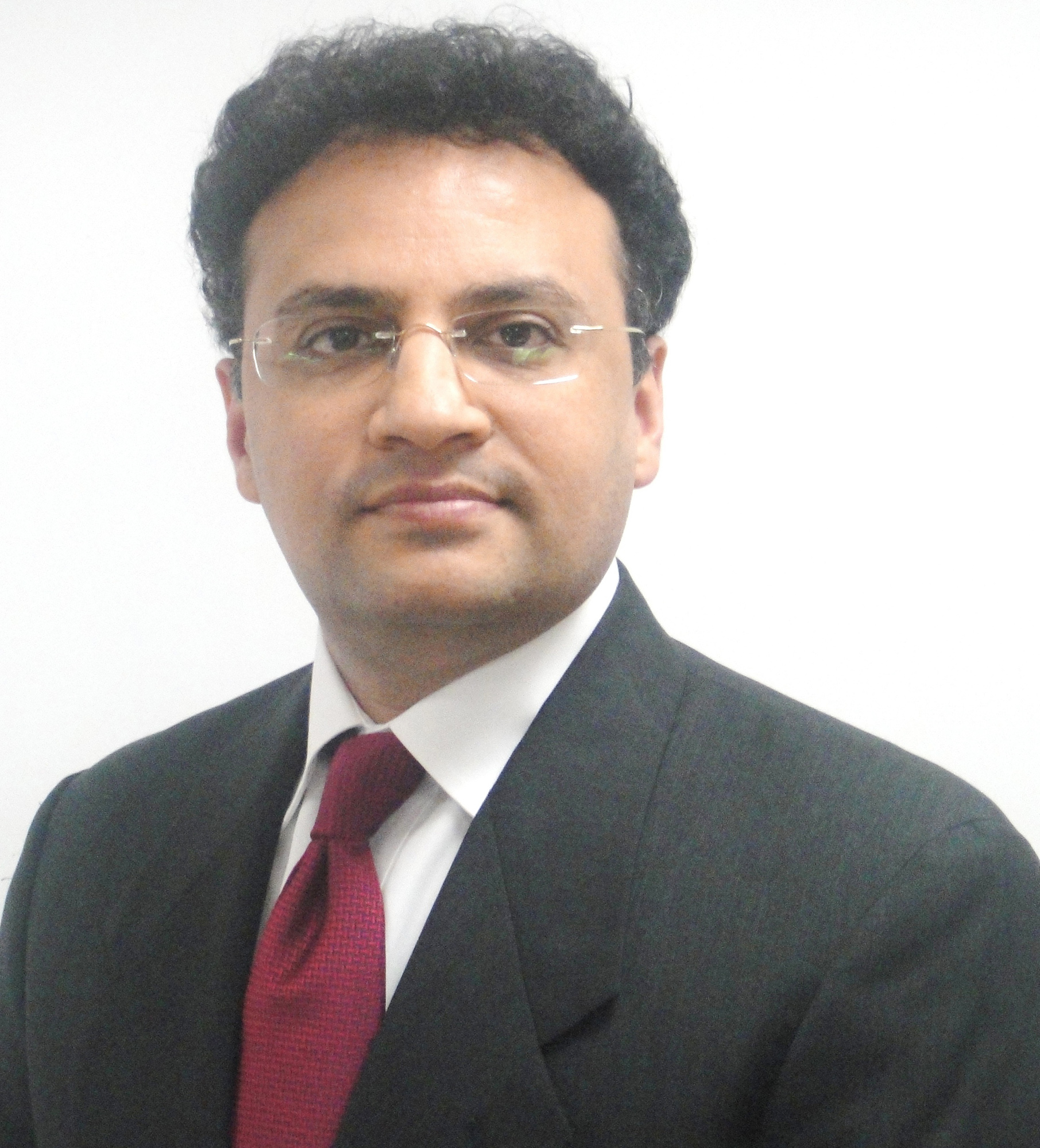
Sandy Mehta is the Chief Executive Officer and Chief Investment Officer of Evaluate Research Ltd. He has over 30 years of investment experience and has previously founded investment adviser Value Investment Principals — HK/India — and hedge fund Acumen Capital Management in Boston.
Mr. Mehta has previously been a portfolio manager for two 5 Star funds, a $15 billion flagship Global Equity Fund and $2 billion small-cap fund, at Putnam Investments and Wellington Management Co., both in Boston. He also has been the head of a global research team and incubated a $300 million small-cap fund at Putnam.
He was the first analyst ever hired by legendary value manager John Rogers at Ariel Capital in Chicago, and also worked with Arnie Schneider and John Neff at Wellington.
In this 2,115 word interview, exclusively in the Wall Street Transcript, Mr. Mehta makes the case for his portfolio management philosophy.
“…The focus is providing research coverage on companies that are otherwise being ignored by Wall Street and the bulge bracket brokerage firms.
Our firm has grown well over the last four years, and with some of the secular trends that are happening globally — where the asset management companies are under pressure because of indexation and lower fees, and then the brokerage firms are under pressure because of MiFID II, and you’re seeing analysts get laid off — we think a firm like Evaluate Research really provides a valuable service to the investors and the companies as well.
…For the vast majority, 80% of the companies we cover, we are the only people following the stock. We do very detailed work. When we do an initial report on a stock, it’s a 30- to 40-page report.”
Some specific examples are overseas:
“Mr. Mehta: I would mention just a couple more ideas. One is Ozner Water International (HKG:2014). This is a leading supplier of water and air purifiers in China. Again, this is an environmentally friendly secular growth space.
They have a vast distribution network of over 7,000 distributors throughout China, and that network has grown at 20% CAGR over the past three years.
And the penetration of water purifiers in China is only 13%, whereas in developed markets it’s more like 70%. So we expect 20% revenue growth going forward the next three years, 30% earnings growth, and the stock is trading at just 0.9 price to book, and it’s an 8 p/e, four times EV to EBITDA.
And one final idea I will mention is Sun Hung Kai Limited (HKG:0086). This is a niche investment in a finance firm; it has mortgage lending and consumer lending. It’s got 50 years of operating history, and again, they are in growth areas.
The stock is very, very undervalued today, at just 5 times p/e, 0.5 tangible price to book. The company is buying back stock, they bought about 7% of their stock last year, and this is on top of about a 6.5% dividend yield that they have.
So in the last 12 months, they have returned about 14% of their stock price to shareholders, which is one of the highest levels of capital return in the world.”
Get all of Mr. Mehta’s top portfolio picks by reading the entire 2,115 word interview, exclusively in the Wall Street Transcript.
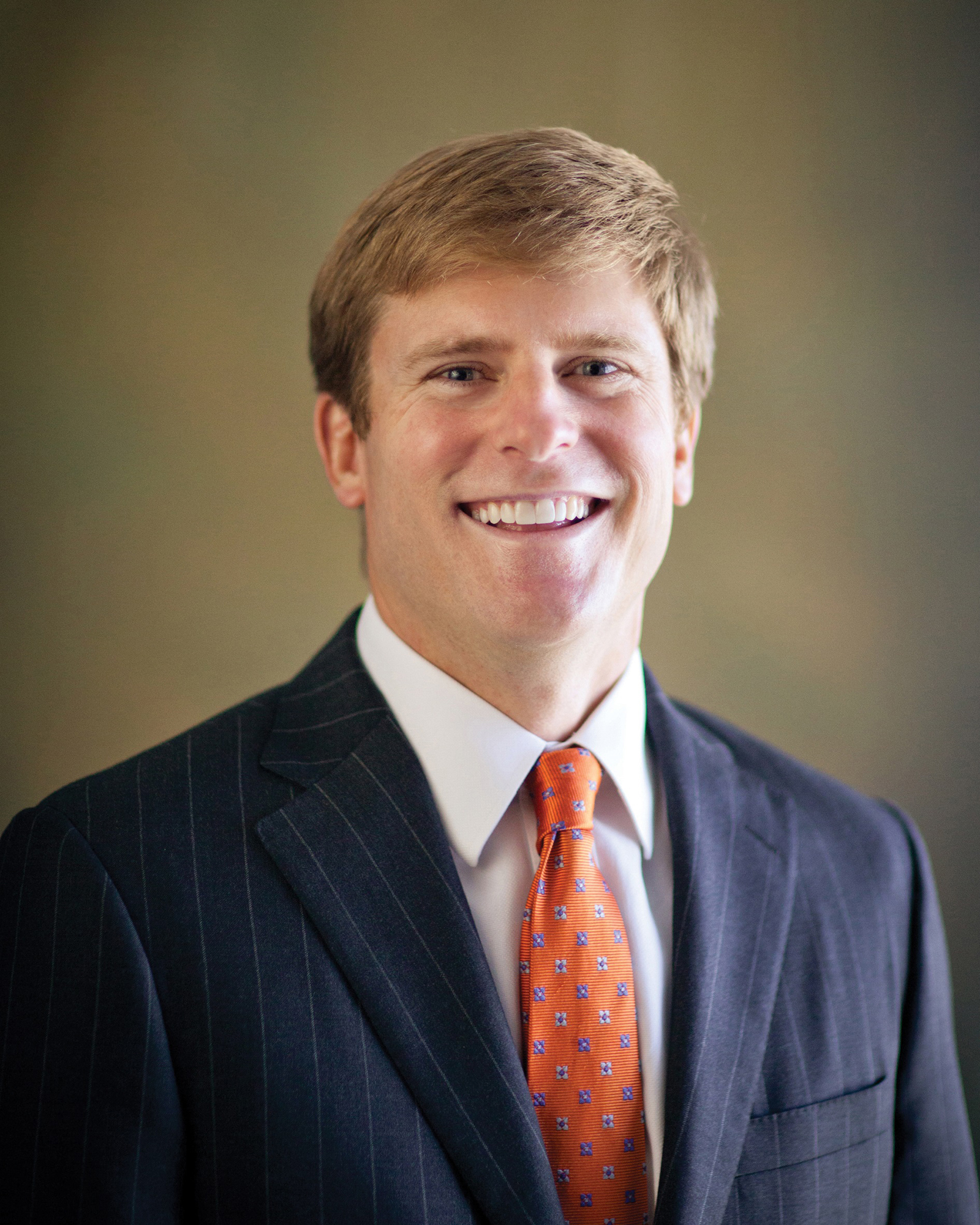
St. Denis Villere III is Partner/Portfolio Manager at Villere & Co. He joined the firm in 1999 to launch and manage Villere’s first mutual fund. He started his career as an institutional research analyst and equity sellside analyst with Gerard Klauer Mattison, a Wall Street institutional equity research firm.
He received a degree in finance from Southern Methodist University. He is a member of the CFA Institute. Mr. Villere has been frequently quoted by The Wall Street Journal, Associated Press and Reuters. He is a regular guest on CNBC and other financial media outlets.
Mr. Villere dedicates much of his personal time to New Orleans charities. As President of Carrollton Boosters, he oversees 5,000 players in youth baseball, softball, basketball, soccer, flag football and lacrosse. He is the former Board Chairman of Trinity Episcopal School. He also serves on the board of Pro Bono Publico Foundation, helping the organization raise $1 million for New Orleans charter schools every year.
In this exclusive 3,014 word interview in the Wall Street Transcript, Mr. Villere details how his firm increases his investors wealth year after year.
“We’re always looking for names that are a little bit off Wall Street’s radar screens. High-quality companies that dominate a niche, but maybe the rest of Wall Street doesn’t quite know about them yet. We are also more concentrated, with high-conviction positions, in the 20- to 30-holdings range.”
One example is Roper Technologies (NYSE:ROP):
“We think of it as kind of a mini Berkshire Hathaway (NYSE:BRK.A) that’s really focused on acquiring probably more technology-oriented companies that are very high in gross margins, about 63%.
It has high EBITDA margins, about 35%. And about 50% of their revenues have been recurring in nature, which we really like. They use the cash flow that these businesses produce, and they continue to make more and more acquisitions. And it’s one that I think is going to work out well and can be held for our time frame, which is at least three to five years.”
Get all the top picks from this New Orleans based portfolio manager by reading the entire 3,014 word interview, exclusively in the Wall Street Transcript.
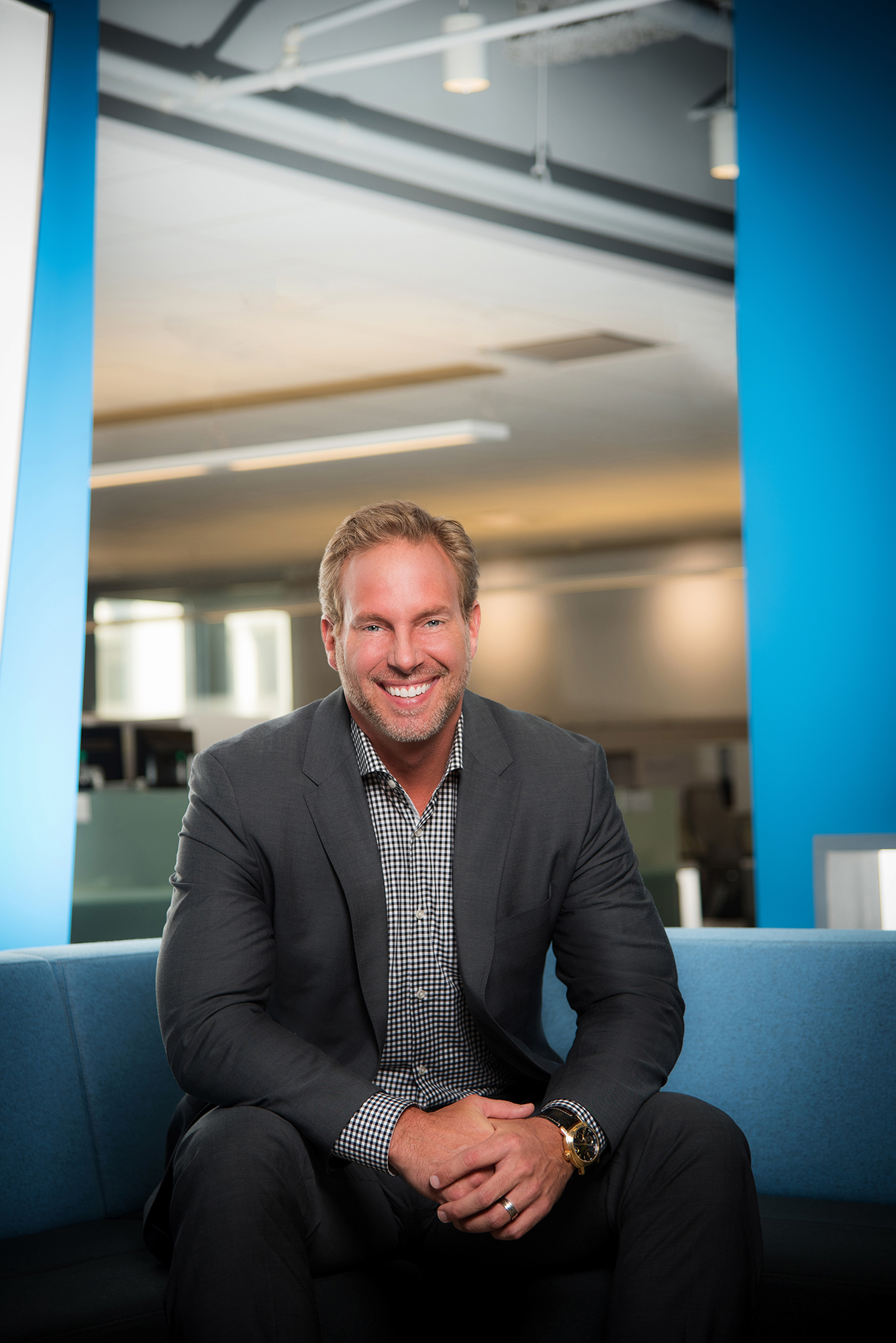
Steven P. Grimes has served as Chief Executive Officer of Retail Properties of America, Inc. (NYSE:RPAI) since 2009 and as a Director since 2011.
Previously, Mr. Grimes was President of the company from October 2009 through May 2018; Chief Financial Officer of the company since the internalization of its management in November 2007 to December 2011; Chief Operating Officer of the company from November 2007 to October 2009; and Treasurer of the company from October 2008 to December 2011.
From February 2004 to November 2007, Mr. Grimes served as Principal Financial Officer and Treasurer and Chief Financial Officer of Inland Western Retail Real Estate Advisory Services, Inc., the REIT’s former business manager/adviser.
Previously, Mr. Grimes served as a director with Cohen Financial, a mortgage brokerage firm, and as a senior manager with Deloitte & Touche LLP in their Chicago-based real estate practice, where he was a national deputy real estate industry leader.
CEO Steven Grimes describes the re-strucuturing of his company and its future prospects, only in this 4,142 word interview:
“The final thing I’ll mention is in all of those repositioning efforts over those five years, which was a year ago now, ending in 2018, was a major improvement in our balance sheet. Our balance sheet, when you look at us back in 2013, was a bit overleveraged, and it was overleveraged on an individual asset basis, so a lot of secured loans.
What we’ve done over the course of the past five years is we have taken our leverage down over two times net debt to EBITDA, which is a metric for leverage, and we’re sitting at 5.5 times right now, which is probably one of the healthier balance sheets in the strip center space. And we have migrated away from secured financing to the tune of almost 90% of our debt is unsecured right now.
And why that’s important for us is because it allows you to be a lot more nimble at the asset level to take advantage of growth opportunities within them.
You don’t have lender approvals required or lender restrictions as to what you can be doing. So our hope was to migrate to a fully unsecured balance sheet, which essentially we’ve done, and get rated in the process, and so part and parcel to that effort, we have been rated by Moody’s and S&P. We are now an investment-grade-rated company.”
Get the complete picture on the future of this REIT exclusively from the CEO Steven Grimes in this 4,142 word interview, only in the Wall Street Transcript.